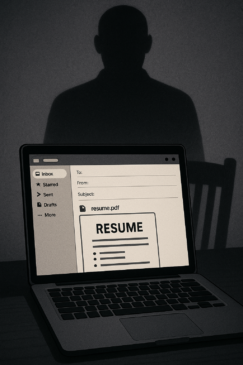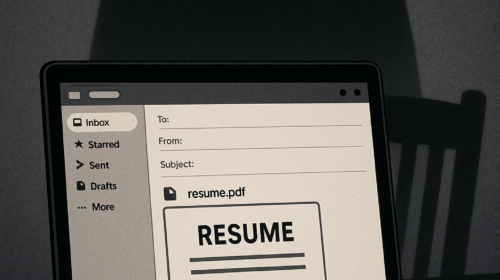When I started applying for new jobs, I kept my search private. I wasn’t unhappy at my current role, but I was ready for something more challenging. The last thing I wanted was for my boss to know I was looking elsewhere before I was ready to give notice. That’s why what my boyfriend, Mark, did felt like such a deep betrayal—he sent my resume to his own boss without asking me first.
How It Happened
One evening, Mark and I were having dinner at home when I casually mentioned how competitive the job market was. I told him I’d been updating my resume and applying to a few positions, but nothing solid had come through yet. He looked up from his plate and said, “You know, my company is hiring. You’d be perfect for the communications role they just posted.”
I appreciated the thought, but I told him I didn’t think it was a good idea. His company was small, and I didn’t want to mix our personal and professional lives. “I’m not sure I’d be comfortable working with you in the same place,” I explained. He nodded, and I thought that was the end of it.
The Shocking Email
A week later, I got an email from Mark’s boss—someone I’d met only once at a holiday party. The subject line read: Application for Communications Manager Position. Inside was a short note thanking me for my interest in the role and inviting me for an interview. Attached was my resume.

My resume.
One that I had never sent to them.
Realizing What He’d Done
Confused and panicked, I called Mark at work. “Did you send my resume to your boss?” I asked, my voice already shaking.
He didn’t deny it. “Yeah, I thought it would give you a foot in the door. I told him you’d be amazing for the role.”
I was stunned. “Mark, I told you I didn’t want to apply there. Why would you go behind my back?”
He sounded baffled by my reaction. “I was just trying to help. You’ve been saying how hard it is to get interviews—this is a great opportunity.”
Why It Was a Problem
This wasn’t about the job. It was about control. By sending my resume without my consent, Mark had taken away my ability to choose where I applied and when. He’d also put me in an incredibly awkward position—what if his boss told other people in the industry I was job hunting? My current employer could easily find out.
There was also the personal dynamic to consider. If I got the job, I’d be working alongside my boyfriend and his boss—who now knew I hadn’t personally chosen to apply. It made me feel exposed and vulnerable, like my career was no longer fully my own.
The Conversation That Followed
That night, I sat Mark down and explained why I was upset. “It’s not just that you sent my resume without asking. It’s that you ignored what I said and made a decision for me about my career. That’s not okay.”
He defended himself, saying he thought I’d thank him once I got the interview. “I just wanted to give you options,” he insisted.
“Options are great,” I told him. “But they have to be my options. You don’t get to decide that for me.”
The Awkward Interview Decision
I debated canceling the interview to make a point. But in the end, I decided to attend—not because I wanted to work there, but because I didn’t want to burn a professional bridge. I treated it as a networking opportunity, but I made it clear during the conversation that my interest in the role was still exploratory.
Afterward, I felt relieved when the company moved forward with another candidate. The thought of navigating the power dynamics of working with Mark and his boss was more than I wanted to handle.
The Bigger Impact on Our Relationship
This incident made me realize that Mark and I had very different ideas about boundaries. To him, taking action without checking with me was a sign of initiative. To me, it was overstepping in a way that undermined my autonomy.
We had to have a serious talk about respecting each other’s decisions—especially when it came to work and personal goals. He agreed to back off in the future and to always ask before making any move that could affect my career.
Moving Forward
I learned a valuable lesson: even when people mean well, they can still cross lines. And if you don’t address it, they’re likely to do it again. While I believe Mark was trying to help, the way he went about it made me question how much he respected my voice in our relationship.
Final Thought: Good intentions don’t erase bad boundaries. When it comes to career moves—or any personal decision—respecting someone’s autonomy is just as important as offering your support.



